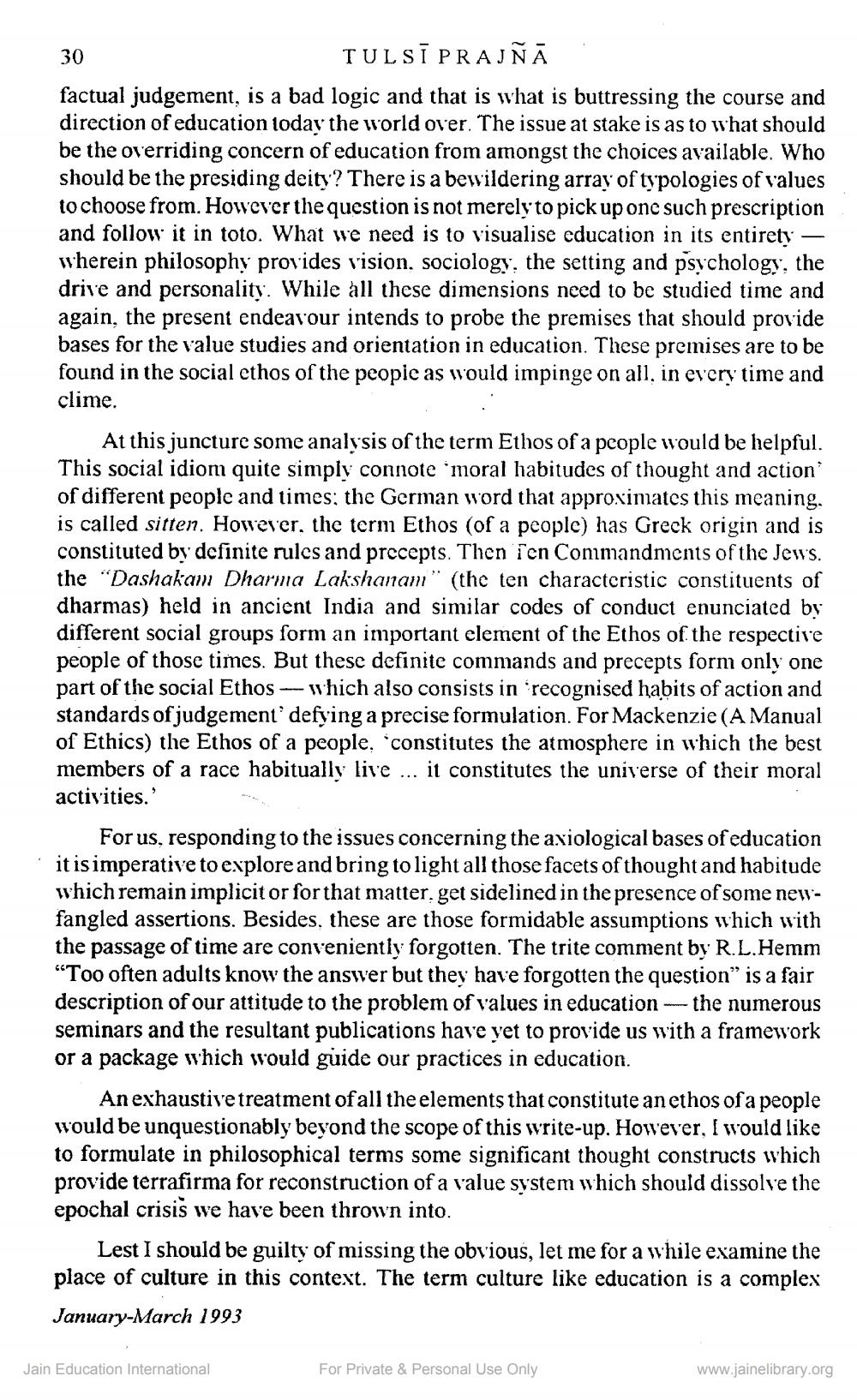________________
30
TULSI PRAJŇA factual judgement, is a bad logic and that is what is buttressing the course and direction of education today the world over. The issue at stake is as to what should be the overriding concern of education from amongst the choices available. Who should be the presiding deity? There is a bewildering array of typologies of values to choose from. However the question is not merely to pick up one such prescription and follow it in toto. What we need is to visualise education in its entirety — wherein philosophy provides vision, sociology, the setting and psychology, the drive and personality. While all these dimensions need to be studied time and again, the present endeavour intends to probe the premises that should provide bases for the value studies and orientation in education. These premises are to be found in the social ethos of the peopie as would impinge on all, in every time and clime.
At this juncture some analysis of the term Ethos of a people would be helpful. This social idiom quite simply connote ‘moral habitudes of thought and action of different people and times, the German word that approximates this meaning. is called sitten. However, the term Ethos (of a people) has Greck origin and is constituted by definite rules and precepts. Then Ten Commandments of the Jews. the “Dashakam Dharma Lakshanam" (the ten characteristic constituents of dharmas) held in ancient India and similar codes of conduct enunciated by different social groups form an important element of the Ethos of the respective people of those times. But these definite commands and precepts form only one part of the social Ethos -- which also consists in 'recognised habits of action and standards of judgement' defying a precise formulation. For Mackenzie (A Manual of Ethics) the Ethos of a people, constitutes the atmosphere in which the best members of a race habitually live ... it constitutes the universe of their moral activities.'
For us, responding to the issues concerning the axiological bases of education · it is imperative to explore and bring to light all those facets of thought and habitude which remain implicit or for that matter. get sidelined in the presence of some newfangled assertions. Besides, these are those formidable assumptions which with the passage of time are conveniently forgotten. The trite comment by R.L.Hemm “Too often adults know the answer but they have forgotten the question” is a fair description of our attitude to the problem of values in education --- the numerous seminars and the resultant publications have yet to provide us with a framework or a package which would guide our practices in education.
An exhaustive treatment of all the elements that constitute an ethos of a people would be unquestionably beyond the scope of this write-up. However, I would like to formulate in philosophical terms some significant thought constructs which provide terrafirma for reconstruction of a value system which should dissolve the epochal crisis we have been thrown into.
Lest I should be guilty of missing the obvious, let me for a while examine the place of culture in this context. The term culture like education is a complex January-March 1993
Jain Education International
For Private & Personal Use Only
www.jainelibrary.org




